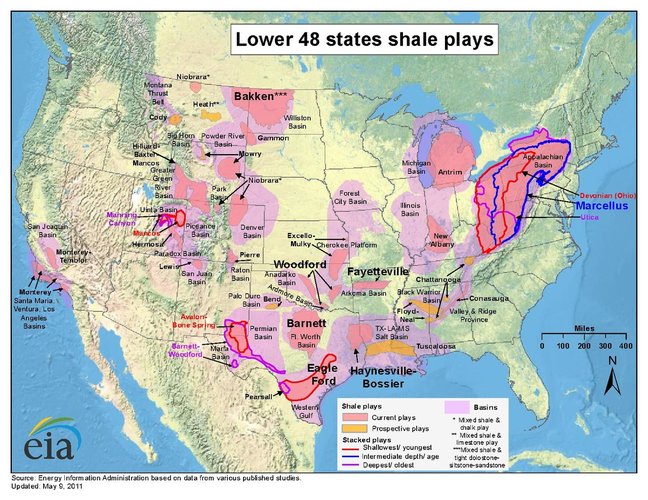SAJ-99
Well-known member
Or reality. But I will wear that “leftist enviro nazi” badge with pride.Sounds like a leftists enviro nazi wet dream.
Follow along with the video below to see how to install our site as a web app on your home screen.
Note: This feature may not be available in some browsers.
Or reality. But I will wear that “leftist enviro nazi” badge with pride.Sounds like a leftists enviro nazi wet dream.
More like alternate reality.Or reality. But I will wear that “leftist enviro nazi” badge with pride.
Your injecting a lot of emotional drama into this that just isnt of merit.I'm going to put a toxic dump in your yard, but it's cool, because it's just in a corner that you're not using at the moment. I totally promise to bury the waste and even though I'm working to overturn the laws that make my mitigation of trash mandatory, you'll just have to trust me that I'll not totally screw this up, like I've done time & time before.
If you don't like it, you hate America and want us all to live in filth.
I am opposed to drilling in Wildlife Refuges based on the ideology that some places should be left alone, and used for their congressionally intended purpose of ensuring that wildlife has a place to exist and thrive without having to be impacted by any poorly thought out development. Yes. You got me pegged there. I also oppose developing Wildlife Management Areas, National Parks, Wilderness Areas and lands in the NLCS system, as well as wildlife refuges.
Not sure who "you guys" are, but I am opposed to large scale industrial developments on public lands, regardless of the type of energy being extracted. I've been perfectly clear about that.
Emotional drama has been a significant factor in preventing resource rich America from being mostly drilled and paved!Your injecting a lot of emotional drama into this that just isnt of merit.
I think you underestimate how people change their purchasing habits. You can actually look at the last 40ys of light truck sales and overlay it with gasoline prices.
Also, what is “very little”. Sort of a nebulous phrase. Almost 18% in 2019, and climbing. I agree that an “all of the above” solution will be necessary, but we are already well on our way down that path. Some tax changes and extensions will accelerate that process.
View attachment 171095

I find it interesting that a third of renewables are hydro, yet when was the last hydro plant constructed. Also interesting that CA doesn't consider large scale hydro "renewable" because of habitat impacts.
Personally I don't think current solar is a particularly good solution, outside of small privately owned panels. With more people working from home, a trend that might continue? I think some of the duck curve arguments are less valid.
Seems like nuclear is probably are only realistic short term (50 year) option for reducing fossil fuel use. A lot of concerns with nuclear stem from designs that are 50-60 years old and don't reflect current technology.

Next Generation Nuclear Power
New, safer and more economical nuclear reactors could not only satisfy many of our future energy needs but could combat global warming as wellwww.scientificamerican.com

Can you unpack how you are using science a bit, do you mean the EIS of the planned route?I have some questions about the Keystone decision, none of which are based on the quality/complexities of Canadian crude.
We claim we make these decisions, for/against based on science. Sometimes science gets ignored when rejecting permits. Sometimes it gets ignored when approving permits. Whatever side someone is on, they claim the science supports the decision they prefer, though that is often not the case.
In the Keystone case, I struggle to understand how the science could be assessed so quickly. Was the science disregarded when it was originally permitted under the Obama Admin, then delayed by the Obama Admin? Was the science disregarded when the permit was reinstated by the Trump Admin?
Whatever way it is decided, I would like that to be based on science. To make this decision immediately seems to raise the question of "What happened to the science?"
This change to remove the permit does have some serious consequences to small towns along the path of the pipeline (including MT small towns) with those consequences deep enough that those communities deserve to have these decisions settled based on the actual facts and science, not the political winds that keep kicking the permit back and forth.
Your injecting a lot of emotional drama into this that just isnt of merit.
I have some questions about the Keystone decision, none of which are based on the quality/complexities of Canadian crude.
We claim we make these decisions, for/against based on science. Sometimes science gets ignored when rejecting permits. Sometimes it gets ignored when approving permits. Whatever side someone is on, they claim the science supports the decision they prefer, though that is often not the case.
In the Keystone case, I struggle to understand how the science could be assessed so quickly. Was the science disregarded when it was originally permitted under the Obama Admin, then delayed by the Obama Admin? Was the science disregarded when the permit was reinstated by the Trump Admin?
Whatever way it is decided, I would like that to be based on science. To make this decision immediately seems to raise the question of "What happened to the science?"
This change to remove the permit does have some serious consequences to small towns along the path of the pipeline (including MT small towns) with those consequences deep enough that those communities deserve to have these decisions settled based on the actual facts and science, not the political winds that keep kicking the permit back and forth.
I was thinking about this on my hike this morning and came to the same conclusion-that maybe nuclear is the best solution. Of course nuclear fusion is the holy grail. Traditional nuclear has a lot of NIMBY issues and one disaster could be catastrophic for a large land area. The other is that regulations and permitting increase the costs. If I remember correctly, last report I saw showed all the old plants will be decommissioned and not improved because of the cost. Maybe there have been some changes to that. It is good to see new plants being built. No offense to Williston, but you could put a dozen plants in that region and fee people would care. In the end, we probably need to pay more for electricity. In the new administration, I suspect most alt energy will be focused on offshore wind. Like everyone else I’m not a fan of huge solar fields in remote lands because those are the ones we here are generally trying to preserve.I find it interesting that a third of renewables are hydro, yet when was the last hydro plant constructed. Also interesting that CA doesn't consider large scale hydro "renewable" because of habitat impacts.
Personally I don't think current solar tech is a particularly good solution, outside of small privately owned panels. With more people working from home, a trend that might continue? I think some of the duck curve arguments are less valid.
Seems like nuclear is probably are only realistic short term (50 year) option for reducing fossil fuel use. A lot of concerns with nuclear stem from designs that are 50-60 years old and don't reflect current technology.

Next Generation Nuclear Power
New, safer and more economical nuclear reactors could not only satisfy many of our future energy needs but could combat global warming as wellwww.scientificamerican.com
I’m with you on this. Keystone is just a political pawn at this point. Repubs are married to O&G and Dems need the green groups (alt energy, climate change proponents, etc). The only part affected is the line that crossed into Canada, so I agree we are basically screwing our neighbors to the North. The US players are more worried about what comes next. To unpack any decision would require unpacking the economics of the entire oil industry and that is impossible in less than 2,000 pages. The “jobs” number I have seen some here worry about is no where near reality. The best estimate (that didn’t require a lot of whisky the believe) was 1200-1500 people working to build it and maybe 50 FTEs to run it. Some could even argue that keystone will just increase our exports. The bottom line is we are not running short of oil. If oil hits $100, come back to me and we can reevaluate. Its just is hard to make a profit at the current price. But $50 is better than $40 so the industry players will benefit by higher prices. The majors are already verbally supporting a carbon tax and reinstating restrictions on free release of nat gas/methane. They see where things are going and just want to tweak it to their own agenda. In the end, we will pay for it all.Can you unpack how you are using science a bit, do you mean the EIS of the planned route?
------ Unrelated to your post---------
I've never felt fully satisfied with the Keystone discussion. I understand the environmental arguments, I understand the arguments about job creation; I understand both the Obama v. Paul Ryan arguments about number of jobs.
My understandings is that BC won't allow a port or pipeline to be built, and that it's untenable to build a pipeline to the Atlantic. So essentially the pipeline is a domestic Canadian issue not really an American one.
Oregon is fighting tooth and nail against Jordan Cove, WA and CA have said that export terminals aren't happening... what would Mexico say if we tried to build a NG pipeline from Pecos or Carlsbad to Senora and then constructed a LNP terminal for exports to Japan?
Is there a net cost to the American energy industry that we are supporting an allies energy industry. Price differentials for different basins are a product of infrastructure and that infrastructures capacity. Wells in OK might not be as "big" as wells in NM, but they don't produce as much water and they are closer to Cushing, so your ROR on well in OK might be better than a NM well even though it's IP is 1,000 instead of 1,500.
Point being, is it not in the interest of American producers to hose the Canadian's a bit (no offense Canadians)? The US industry has experienced a lot of bankruptcy and jobs losses in the last couple of years... would anyone be supporting helping the Saudi or Russian or Mexican oil industries?
If someone has a good article that unpacks this ^ please post the link I haven't found a good one. @SAJ-99 you got something for me I'm sure you have a subscription to the economist
The Canadians have options with their Trans Mountain pipeline project.I’m with you on this. Keystone is just a political pawn at this point. Repubs are married to O&G and Dems need the green groups (alt energy, climate change proponents, etc). The only part affected is the line that crossed into Canada, so I agree we are basically screwing our neighbors to the North. The US players are more worried about what comes next. To unpack any decision would require unpacking the economics of the entire oil industry and that is impossible in less than 2,000 pages. The “jobs” number I have seen some here worry about is no where near reality. The best estimate (that didn’t require a lot of whisky the believe) was 1200-1500 people working to build it and maybe 50 FTEs to run it. Some could even argue that keystone will just increase our exports. The bottom line is we are not running short of oil. If oil hits $100, come back to me and we can reevaluate. Its just is hard to make a profit at the current price. But $50 is better than $40 so the industry players will benefit by higher prices. The majors are already verbally supporting a carbon tax and reinstating restrictions on free release of nat gas/methane. They see where things are going and just want to tweak it to their own agenda. In the end, we will pay for it all.
"Social decisions" is how we got a ridiculous EMP.The same situation arose with Kerry White's bill to have all FWP decisions based on "science." All natural resource decisions are social decisions aimed to satisfy a segment of population. They have a goal, and science is used to achieve that desired goal.
What you don't think California is going to ramp up production to meet demandThe Canadians have options with their Trans Mountain pipeline project.
Who's hurt is the gulf coast refineries looking for a cheap replacement for decreasing volumes of Venezuelan heavy crude.
At the end of the day Canadian heavy crude will be utilized one way or another.
Thats what is said about every project..The ANWR is not the place, keep it wild.
The ANWR is not the place, keep it wild.
Oil extraction is necessary to keep the economy and production of most American goods accessible. The impact to our environment has been noticed and oil extraction isn’t what it was 100 years ago.
How are we to maintain the current demand for oil without drilling for oil? Driven by money or need, either way there is no solution by stopping oil exploration.
Denying the need for oil is unrealistic, yet people somehow think we need to drill for oil where it isn’t.


It’s not a shale field so the comparison is not correct. Huge difference in methods, extraction costs etc. No company wants to extract oil up there because the costs are the same...there is a savings.